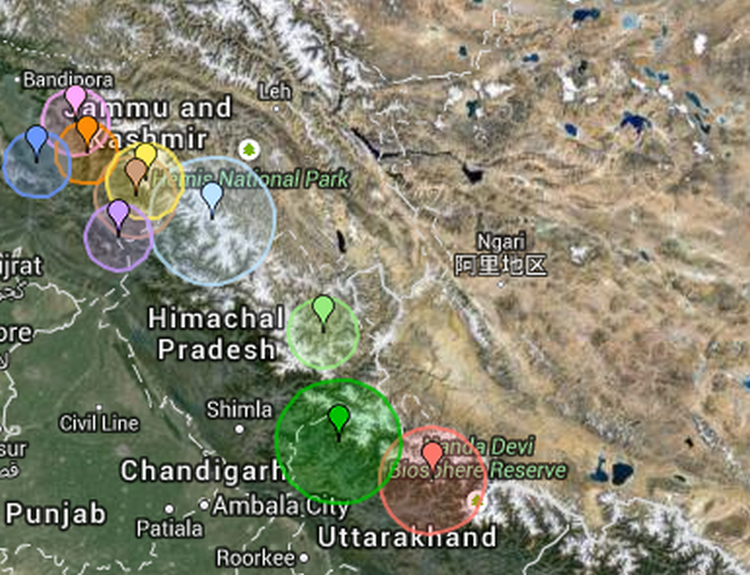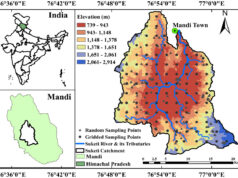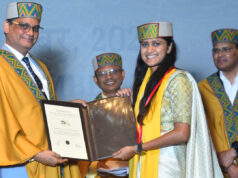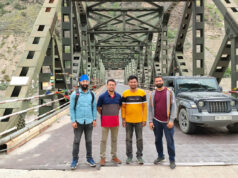Tech and Innovation hub will focus on technology (interface) development and evaluation, human resource and skill development, entrepreneurship and collaboration with other leading academic and research Institutions
Kamand/Mandi: Under its National Mission on Interdisciplinary Cyber-Physical Systems (NM-ICPS), the Department of Science and Technology (DST) has sanctioned Rs. 7.25 crore to IIT Mandi to establish a Technology Innovation Hub at the Institute.
The major focus of the Technology Innovation Hub in IIT Mandi will be on human-computer interaction (HCI) research, where projects will focus on design and development of computer technology (interfaces) and the study of interaction between humans (users) and computers.
Human-computer interaction is focused on the ways in which humans interact with computers and design technologies that let humans interact with computers in novel ways. As a field of research, HCI is situated at the intersection of computer science, behavioural sciences, design, and media studies among others.
Speaking about the short- and long-term objectives of the Technology Innovation Hub, Dr. Varun Dutt, Principal Investigator, Technology Innovation Hub, and Associate Professor, School of Computing and Electrical Engineering, School of Humanities and Social Sciences, IIT Mandi, said,
“The Technology Innovation Hub provides exciting opportunities for IIT Mandi to become a world leader in HCI and allied areas, where national research has been nascent.”
Speaking about the grant, Dr. Arnav Bhavsar, Co-Principal Investigator, Technology Innovation Hub, and Associate Professor, School of Computing and Electrical Engineering, IIT Mandi, said,
“In line with the culture at IIT Mandi of collaborative research and nurturing entrepreneurship, the Technology Innovation Hub will further enable significant strides by the institute in industry collaboration and in the development of indigenous technology.”
The Technology Innovation Hub will develop tools, education material, hands-on experiments with specialised tool kits, connecting with existing innovation ecosystems. It will inter-link with different stakeholders and connect with other initiatives of the Government of India by providing an innovation platform for schools, colleges and advanced technical training institutes in the targeted areas. The deliverables include:
- Technology Deliverables: To develop technology interface for challenges concerning landslides, environment (including climate change), air pollution, agriculture, cybersecurity, defence forces, healthcare, and forensics.
- Human Resource and Skill Development Deliverables: To generate skilled manpower in HCI area at graduate, post-graduate, doctoral, post- doctoral and faculty level by organising workshops and seminars.
- International Collaborations Deliverables: To develop and sustain existing and new collaboration with universities and organisations in India and abroad.
- Entrepreneurship and Startup Deliverables: To create a startup ecosystem by working with the technology-business incubator of IIT Mandi, Catalyst, with an approach of Knowledge Generation – Technology Development – Technology Translation – Technology Commercialisation.
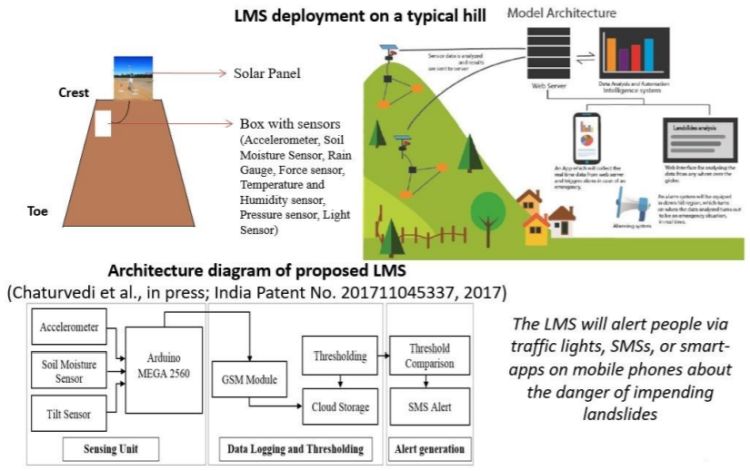
A number of industries, academic and research partners are partnering with IIT Mandi in the Technology Innovation Hub. So far, the industry and research partners include, Centre for Development of Advanced Computing (C-DAC), Mohali; Defence Research and Development Organization (DRDO); National Disaster Management Authority (NDMA); Regional Forensic Science Laboratory (RFSL); Himachal Pradesh state government; Adobe; RxDataScience; Dattendriya; Aindra; and, Bioedha. The academic partners include Carnegie Mellon University, USA; London Metropolitan University, UK; Norwegian University of Science and Technology (NTNU), Norway; and, Postgraduate Institute of Medical Education and Research (PGIMER), Chandigarh.
The Technology Innovation Hub will also work on the development and evaluation of interfaces of IoT-based Cyber-Physical Systems (CPS), where CPS contains physical elements (sensors) for collecting data and cyber elements (analytics and visualization software) for alerting/ educating people for directed action. Here, data collected from CPS will be evaluated via human experiments and cognitive models for training and improving decisions of the human stakeholders for better outputs.
Cyber Physical Systems (CPS) are a new class of engineered systems that integrate computation and physical processes in a dynamic environment. CPS encompasses technology areas of Cybernetics, Mechatronics, Design and Embedded systems,
Internet of Things (IoT), Big Data, Artificial Intelligence (AI) among others. To harness the potential of this new wave of technology and make India a leading player in CPS, the Union Cabinet approved the launch of National Mission on Interdisciplinary Cyber-Physical Systems (NM-ICPS) in 2018, with a total outlay of INR 3,660 crores for a period of five years.



